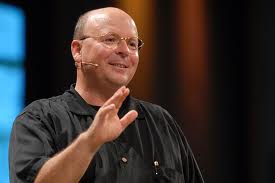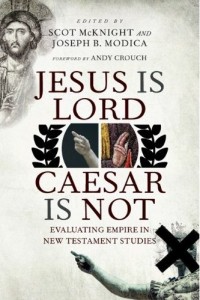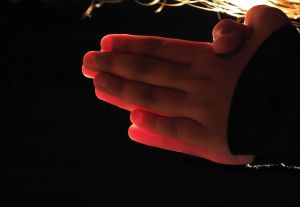A more accurate title would be “Top Books I’ve Read in 2013”, because this is solely based on my opinion, and because my criteria was that I had to have read it this year, but all of the books were not necessarily released this year. Also, it’s important to note that, yes, most of these books were written by Seminary Dropout guests, which may seem self serving, but honestly just reading the books of SD guests (which I must do to conduct the best interviews possible), leaves me little additional time for reading anything else.
Eight books made the list. I realize that eight is an odd number for this sort of list, but I felt that it would be better to leave it at eight, rather than round it up to ten and fill it in with books that, while good, may not be “Top Books”.
Now, on to the good stuff…
8. Prodigal Christianity: 10 Signposts into the Missional Frontier by David Fitch & Geoff Holsclaw
by David Fitch & Geoff Holsclaw

Written by David Fitch & Geoff Holsclaw, both pastors at Life on the Vine in the suburbs of Chicago, and Seminary Professors at Northern Seminary. Prodigal Christianity is a playbook of sorts for those practicing ministry in the middle. If the liberal and conservative extremes just don’t fit for you, then this is required reading.
PC takes years of Fitch’s accumulated notes (both written and mental) on ministry and church that have informed his ways of doing ministry with added input by Holsclaw.
My interview with David & Geoff.
7. Prototype: What Happens When You Discover You’re More Like Jesus Than You Think?  by Jonathan Martin
by Jonathan Martin
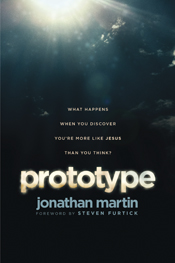 The thing I remember most about my interview with Prototype author Jonathan Martin earlier this year, was that I remember feeling that I was conversing with a true pastor, a shepherd. Some have this gift, but most don’t, the ability to make others feel loved and cared for in the tone of your voice. Somehow Martin conveys this in the written words in his book. Prototype isn’t one of those –who care’s if you sin, it’s no big deal because grace, type books, instead Prototype invites the reader to really imagine that God is for them not against them. That the mere act of believing that God delights in you, is revolutionary in the life of the believer. Find your “boy on the bike”.
The thing I remember most about my interview with Prototype author Jonathan Martin earlier this year, was that I remember feeling that I was conversing with a true pastor, a shepherd. Some have this gift, but most don’t, the ability to make others feel loved and cared for in the tone of your voice. Somehow Martin conveys this in the written words in his book. Prototype isn’t one of those –who care’s if you sin, it’s no big deal because grace, type books, instead Prototype invites the reader to really imagine that God is for them not against them. That the mere act of believing that God delights in you, is revolutionary in the life of the believer. Find your “boy on the bike”.
My interview with Jonathan.
6. The Question That Never Goes Away by Philip Yancey
by Philip Yancey
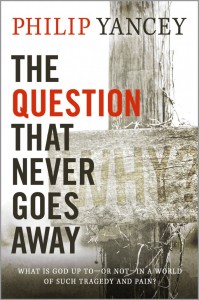
A friend recently told me was having a hard time getting through this book. He’s reads a lot, and the book isn’t long. The reason he was finding it difficult to finish in a few sittings is due to Philip Yancey’s unrelenting desire to tell the truth. Many attempts to deal with the problem of evil have a few fatal errors, one is the saying that maybe the suffering isn’t so bad, the other is saying that maybe God’s causing the suffering for his glory. Yancey will have none of it. Building on what he’s already written in Where is God When it Hurts, and Dissappointment with God, Yancey takes his exploration to the field, recounting his experiences visiting the aftermath of the shootings in Newtown, Fukushima, and sites of other disasters. In Yancey’s usual style he stays away from systematic theology opting instead to deal with scripture on it’s own terms.
My interview with Philip.
5. Benefit of the Doubt: Breaking the Idol of Certainty by Greg Boyd
by Greg Boyd
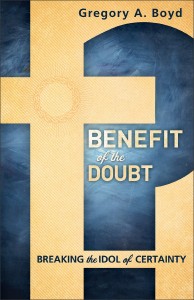
It’s not a huge secret that I’m a huge fan of the words of Greg Boyd, and with Benefit of a Doubt, Boyd outdoes himself yet again. I honestly thought this was going a be a well written “it’s ok to doubt” books, with some good points. But Boyd was serious when he titled it Benefit of a Doubt. Boyd skillfully breaks down the futility of the psychological trick many employ to have more faith, while exposing the anti-intellectualism that often comes from the belief that doubt is the worst thing the world, and a slippery slope into walking away from faith all together. He shows that having a more skeptical and critical thinking mind is not sinful, but a gift from God and that this natural doubt that comes out of it can serve to deepen our understanding about who God is and actually deepen our faith (wishing there were a less cliche way of saying ‘deepen our faith’).
FYI- look for an episode of Seminary Dropout featuring Greg Boyd soon!
4. Jesus Feminist: An Invitation to Revisit the Bible’s View of Women by Sarah Bessey
by Sarah Bessey
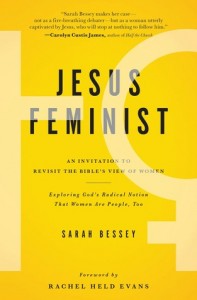
This book was long over due. Jesus Feminist is not an exhaustive apologetic for women having an equal voice in church and at home, it’s better. Jesus Feminist is writer Sarah Bessey’s account of a life on both sides of these issues. How the entire body of believers suffers when women are silenced and the beauty of that body when women are empowered. From opening Sarah disarms any readers that might be uncomfortable with the concept of Christian Feminism. Sarah isn’t so much concerned about labels as she is Christians following the example of Jesus of empowering women as well as interpreting the words of Paul correctly. Readers of Bessey’s blog know that she’s a superb writer and it shines in this important read.
My interview with Sarah.
3. Preemptive Love: Pursuing Peace One Heart at a Time by Jeremy Courtney

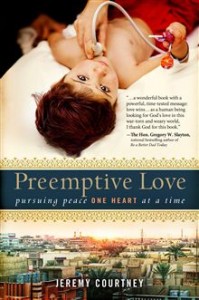
They say that good stories happen to good writers. It also can’t hurt if you’ve transplanting your family to Iraq and started a non-profit that helps Iraqi children get life saving surgeries. And on top of that Jeremy Courtney is an excellent writer. This is not surprising, knowing Jeremy personally, I know that he does most things well.
Preemptive Love is Jeremy’s honest account of moving to Iraq with his family and finding out what it means to pursue peace. PL is half memoir and half adventure novel, and it’s all true. I wouldn’t be surprised if this is made into a movie someday, it’s got all the necessary components. You’ll be devastated when Jeremy relays the stories of others describing how Sedam Hussien used chemical weapons on his own people and the repercussions that are seen still today. You’ll also see the amazing hope being brought to people through the Preemptive Love Coalition Jeremy founded.
My interview with Jeremy.
2. Surprised by Hope: Rethinking Heaven, the Resurrection, and the Mission of the Church by N.T. Wright
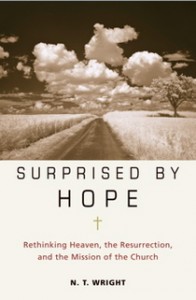

Yes, this came out in 2008, but I’m just getting to it now. I have to say – better late than never. The reason this book has been so popular is because it so thoroughly debunks some prevalent teachings that the church has been giving for years. Most of us were taught: When we die, we go to heaven, the end. But, as Wright so eloquently shows his reader “Heaven is a big deal, but it’s not the end of the world”. When you see the book, you may wonder why it takes so many pages to make his point, but I assure you, there is no waisted ink in this book. To the contrary, I don’t know how many times Wright says something like “unfortunately that requires more time that we have at the present to discuss” (maybe an idea for a fun drinking game at your next book club meeting?). Bottom Line: This is required reading for the serious believer!
I’m dying to get an interview with N.T. Wright, so if anyone has any connections, hook me up!
 1. The Naked Anabaptist: The Bare Essentials of a Radical Faith by Stuart Murray
1. The Naked Anabaptist: The Bare Essentials of a Radical Faith by Stuart Murray
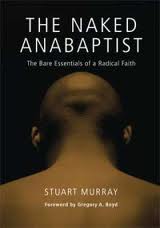 A book with a seemingly narrow niche target audience may seem like an odd pick for the #1 slot. I assure you, it’s not. Even if you don’t have the slightest Anabaptist orientation and aren’t interested at all in the conversation, this book has some things every Christian should take notice of. If for nothing else but the books discussion of Christendom ushered in by Constantine, and how it changed (many would say perverted) the idea of what it meant to be a follower of Jesus. The author Stuart Murray writes so that the story of Anabaptism and Jesus-following of the early church, gets across in an accessible and easy to understand way. I find this message so important that this book will be given to many of my family members this Christmas.
A book with a seemingly narrow niche target audience may seem like an odd pick for the #1 slot. I assure you, it’s not. Even if you don’t have the slightest Anabaptist orientation and aren’t interested at all in the conversation, this book has some things every Christian should take notice of. If for nothing else but the books discussion of Christendom ushered in by Constantine, and how it changed (many would say perverted) the idea of what it meant to be a follower of Jesus. The author Stuart Murray writes so that the story of Anabaptism and Jesus-following of the early church, gets across in an accessible and easy to understand way. I find this message so important that this book will be given to many of my family members this Christmas.
My interview with Stuart.
Now it’s your turn. What other books would be on your list this year?
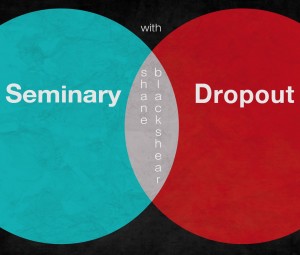

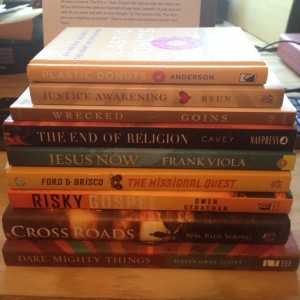







 A book with a seemingly narrow niche target audience may seem like an odd pick for the #1 slot. I assure you, it’s not. Even if you don’t have the slightest Anabaptist orientation and aren’t interested at all in the conversation, this book has some things every Christian should take notice of. If for nothing else but the books discussion of Christendom ushered in by Constantine, and how it changed (many would say perverted) the idea of what it meant to be a follower of Jesus. The author Stuart Murray writes so that the story of Anabaptism and Jesus-following of the early church, gets across in an accessible and easy to understand way. I find this message so important that this book will be given to many of my family members this Christmas.
A book with a seemingly narrow niche target audience may seem like an odd pick for the #1 slot. I assure you, it’s not. Even if you don’t have the slightest Anabaptist orientation and aren’t interested at all in the conversation, this book has some things every Christian should take notice of. If for nothing else but the books discussion of Christendom ushered in by Constantine, and how it changed (many would say perverted) the idea of what it meant to be a follower of Jesus. The author Stuart Murray writes so that the story of Anabaptism and Jesus-following of the early church, gets across in an accessible and easy to understand way. I find this message so important that this book will be given to many of my family members this Christmas.